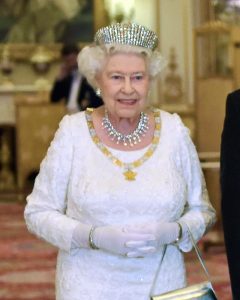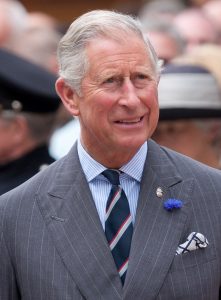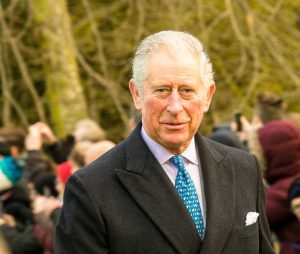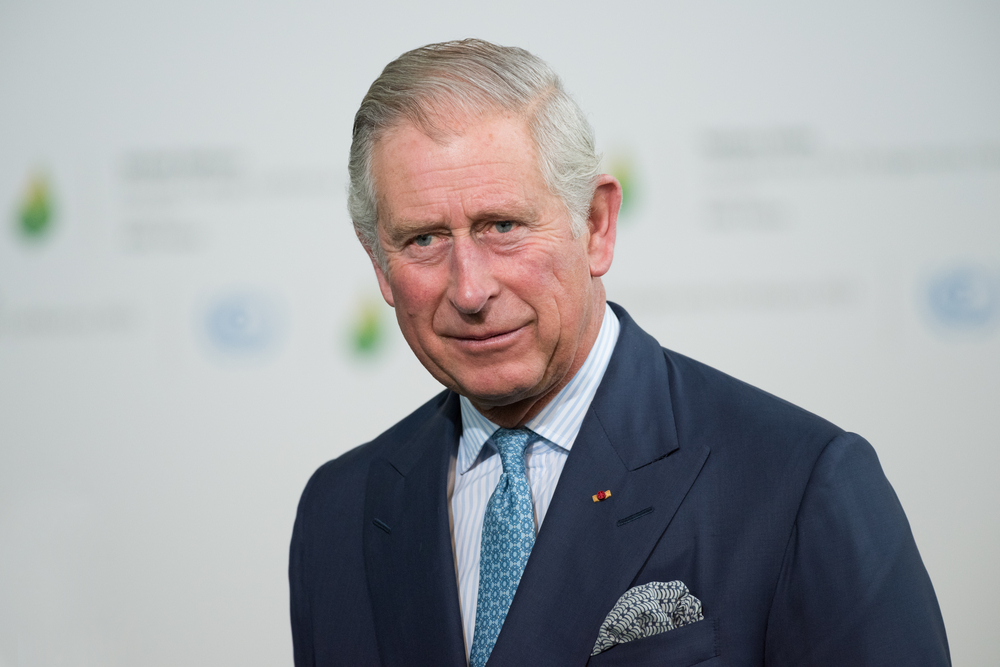It’s hard to believe, but Queen Elizabeth just celebrated her 92nd birthday this year. I say “hard to believe” because, despite her age, the Queen still emanates a positive and healthy vibe that is unrivaled by other heads of state around the world.
But as we approach the beginning of a new decade, many people have started asking the hard question: what would happen when the Queen passes?
It’s a scary question indeed, but there are elements in place to ensure that the monarchy continues uninterrupted. Prince Charles has been groomed his whole life to inherit the throne, and despite some controversy in his earlier years, he has proven himself to be a capable leader.
So how will Prince Charles ascend to the throne?
A Period of Mourning
 First, when the unthinkable happens and the Queen dies, there will be a period of mourning. The news will be broken by the Queen’s private secretary, Sir Christopher Geidt, to the Prime Minister before any other information is released to the Commonwealth. Then, news and other media will be informed. As a show of respect, all other news within the Realm will be put in the backburner and all focus will be on Her Majesty’s passing.
First, when the unthinkable happens and the Queen dies, there will be a period of mourning. The news will be broken by the Queen’s private secretary, Sir Christopher Geidt, to the Prime Minister before any other information is released to the Commonwealth. Then, news and other media will be informed. As a show of respect, all other news within the Realm will be put in the backburner and all focus will be on Her Majesty’s passing.
Both Houses of Parliament shall be recalled and all union flags will be flown at half mast, it’s also possible that workers will be sent home early, depending on the business. There will be a 10-day period between the death of the Monarch and their state funeral. During that time, the Queen shall be transported to Buckingham Palace while members of the Royal Family spend their time in quiet contemplation and grief.
Once a suitable period of time has passed (this being decided by senior royal officials), the Queen will lie in state at Westminster Hall. Members of the public will be able to pay their respects. In the case of the Queen Mother, more than 200,000 people visited. Due to Queen Elizabeth II’s widely popular and positive image, as well as her highly beloved status amongst the public, senior officials at Buckingham expect her funeral to have more than triple the amount of mourners that her mother received. The funeral will be held at Westminster Abbey, where it shall be attended by dignitaries from around the world.
While all this is happening, the government will be busy re-issuing new bank notes to reflect the passing of the crown. New passports will also be issued to reflect the succession. Everyday items, such as stamps and post boxes, that bear the image of the monarch will also be changed, although this will most likely be done in phases.
King Charles III?
 Technically, Prince Charles becomes King the moment his mother passes. This is reflective of the unbroken line of succession that the monarchy follows. Like his mother, Prince Charles will be given the option of choosing his own name. Out of respect, Prince Charles has not made public his chosen regnal name ahead of his accession, although it is believed he will choose the name George, likely a tribute to his Grandfather King George VI and a way to distance himself from the negative connotations with the rule of the two previous King Charles.
Technically, Prince Charles becomes King the moment his mother passes. This is reflective of the unbroken line of succession that the monarchy follows. Like his mother, Prince Charles will be given the option of choosing his own name. Out of respect, Prince Charles has not made public his chosen regnal name ahead of his accession, although it is believed he will choose the name George, likely a tribute to his Grandfather King George VI and a way to distance himself from the negative connotations with the rule of the two previous King Charles.
During the 10-day period between the Queen’s death and the state funeral, the Accession Council, which is comprised of the Great Officers of State, Privy Counsellors, certain members of the House of Lords, and other civil servants, will convene and issue the Proclamation of Accession in different parts of the Kingdom. This proclamation, although ceremonial, confirms to the people of the realm the identity of their new Monarch.
Unfortunately, Prince Charles will not be given much time to mourn; as King, he must make a visit to the other parts of the Realm, particularly Scotland, Wales, and Northern Ireland, as part of a ceremonial introduction to his people. He will, of course, be present at the funeral.
While Prince Charles will become King the moment his mother passes, the official coronation will take place months after. In the case of Queen Elizabeth II, her coronation was conducted on June 2 1953, a year and 4 months after the death of her father, King George VI. This is due to the tradition of allowing an appropriate and respectful length of time to pass after the passing of the previous monarch before merriment is to take place. Once he is proclaimed King, he is expected to move to Buckingham Palace.
Both the future Monarch’s coronation and the current Monarch’s funeral arrangements are all being overseen by a previously-secret group called the Golden Orb, a committee made up of high-ranking members of the aristocracy and are completely independent of the government, Buckingham Palace, or Clarence House. During this time, Members of Parliament are expected to swear allegiance to the new monarch.
Speculation regarding Camilla Bowles, Prince Charles second wife, status and title after the Prince becomes King. Although precedent has paved the way for the wives of Kings to adopt the title of Queen Consorts, Clarence House, the official residence from which Prince Charles makes proclamations, issued a statement that, in the event of accession, Camilla Bowles will not take the title of Queen Consort. This, of course, remains to be seen.
 Beyond the title, it is also possible that Prince Charles will also take on the Queen’s position as Head of the Commonwealth and will be the symbolic ruler of 15 states around the world. While the Head of Commonwealth is not a hereditary title, with the new head usually being decided upon by all the leaders of the Commonwealth nations, it is expected that the new King will be the top choice. Queen Elizabeth II has also expressed her “sincere wish” to see her son “carry on the important work” of being the Head of the Commonwealth.
Beyond the title, it is also possible that Prince Charles will also take on the Queen’s position as Head of the Commonwealth and will be the symbolic ruler of 15 states around the world. While the Head of Commonwealth is not a hereditary title, with the new head usually being decided upon by all the leaders of the Commonwealth nations, it is expected that the new King will be the top choice. Queen Elizabeth II has also expressed her “sincere wish” to see her son “carry on the important work” of being the Head of the Commonwealth.
As Head of the Commonwealth, the new King Charles will have no formal functions per se, but he will be of great symbolic significance and will be looked upon as the father of a family of nations under the Monarchy. He will still have official duties, however, such as holding discussions with other Commonwealth leaders and visiting the Commonwealth countries.
A Post-Elizabeth II England
There are numerous speculations of what the country will look like after the passing of Queen Elizabeth II. It will be indeed the end of an era: Queen Elizabeth II is now one of the longest reigning monarchs in the world, continuing to serve her people for more than 65 years and counting. It is safe to say that more than one generation of Britons have come and gone since she took the throne, and her presence has left an absolutely indelible mark, both in the country and the world.
To say that Prince Charles has massive shoes to fill is an understatement, although I believe that his accession will provide people with a sense of stability and continuation to the public, and show everyone that the United Kingdom remains as strong as ever.
Long live the Queen!
